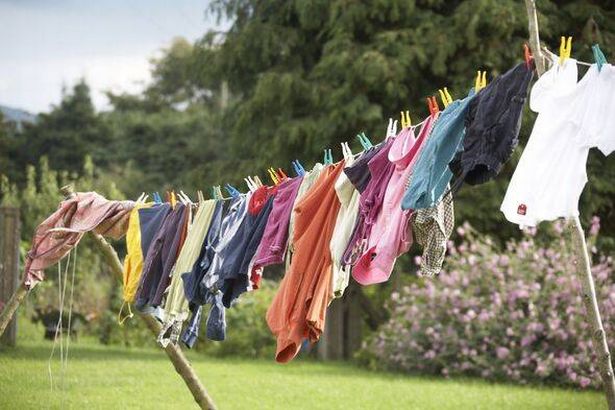UK households are being encouraged to abandon their washing lines and instead dry clothes indoors. With the arrival of warmer weather, conditions may seem perfect for outdoor drying – but it’s not recommended for those suffering from hay fever.
Hay fever season aligns with the onset of spring in late March and continues until September, making it a lengthy period for those with pollen allergies. The Met Office has indicated that tree pollen is already being released, meaning some individuals may be experiencing symptoms.
Grass pollen – the most common allergen – will follow from around mid-May until July. The season concludes with the release of weed pollen until September.
Hay fever symptoms such as sneezing, a runny or blocked nose, itchy and watery eyes, and headaches tend to worsen if the weather is warm, humid and windy.
While there is no cure for hay fever, it can be managed with antihistamines or nasal sprays. However, preventative measures often prove most effective in managing symptoms – including avoiding outdoor drying of clothes, reports the Express.
Pollen, which is sticky, can adhere to your clothes, hair and skin when outdoors. Therefore, leaving your laundry to dry outside for several hours can result in bringing pollen back into your home, exacerbating your symptoms.
Instead, it’s suggested that you should dry clothes indoors when pollen levels are high to help minimise your symptoms.
Experts at MattressOnline have advised: “Don’t dry clothes on an outside washing line. Some of your washing habits might need changing when dealing with hay fever symptoms. For example, avoid drying your clothes and bedsheets outside in the fresh air after doing your laundry, where pollen and dust can collect. Instead, dry them in a tumble dryer or hang them up inside.”
The Met Office has also weighed in, suggesting that hanging laundry outdoors should be avoided particularly when pollen levels are high or when mowing the lawn, as this can cause pollen to enter your home.
Further advice from Fenham Hall Medical Group recommends, “Pollen is fine and sticky. Blocking it out when you are outside is the best way to minimise its effect.”
They also provide practical suggestions: “Sunglasses can help prevent pollen from reaching your eyes, and wearing a hat can stop it from sticking to your hair and getting into your face. When you get home, shower, wash your hair, and change all your clothes.”
